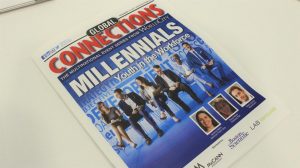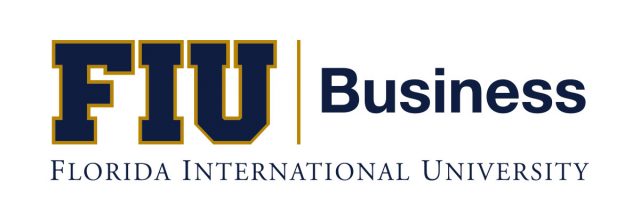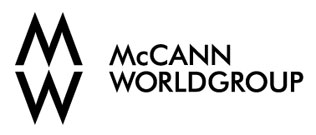Millennials: youth in the workforce
Lazy. Entitled. Can’t turn off their phones. These were some of the stereotypes shared by older audience members about millennials as the Global Connections event organized to better understand that generation got under way.
The three panelists, all millennials, had their own words to describe baby boomers: steadfast, unadaptive, traditional.
So what can organizations learn from this first generation entirely born into the digital age that will improve the day-to-day efficiency of their businesses and, in turn, increase the bottom line? As it turns out, there is much to learn…and much to try differently.
Location. Location. Location…Does Not Matter
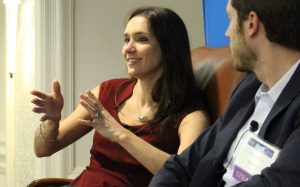
Giannina Marin, senior corporate counsel for Latin America at American Tower Corporation
Flexibility is what matters to millennials in order to allow better work/life integration.
“If I’m not in the office, it does not mean I’m not working,” said panelist Giannina Marin, senior corporate counsel for Latin America at American Tower. “Working from home is not a sick day. That ability to create that flexibility and making it acceptable, not, ‘You can do it, but we don’t want you to do it.’”
And before you just assume this puts Marin into the lazy millennial stereotype, consider her reason why: efficiency and family.
“I wake up at 5 a.m., and I probably work until 7. So before anybody’s up, I’m doing work for Brazil and Argentina, who are ahead,” said Marin. “Then I do a quick run, take a shower, and roll into my office kind of late around 10:30, but I’ve already worked two or three hours. Then I work all day…pencils down at 5 p.m., because I’m usually home to relieve my nanny at 5:30. I’m with my kids until 7:45, then they’re down, and I’m on my computer (working) until whatever.”
Sometimes until after midnight. Doesn’t sound so lazy anymore, does it?
Don’t Confuse Efficiency with Entitlement
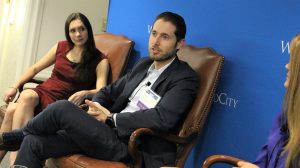
Daniel Acosta, vice president of processing services for Latin America and the Caribbean at MasterCard
One audience member asked the panel if they were CEO, what would they change.
“Start measuring people by objectives and not the amount of hours they have spent in front of a computer,” said Daniel Acosta, vice president and head of processing services for Latin America and the Caribbean for MasterCard.
“I’ve seen people that are at a desk for 12 hours and half of those hours on Facebook or other things,” said Acosta. “You have people who are responsible who can get the same amount of job done in three hours.”
That’s how Acosta said he views work/life balance. Measure his success by the results, not by the specific hours he’s working.
“If I manage to do (the job) from 11 p.m. to 3 a.m., let me do that,” said Acosta. “Don’t be breathing down my neck because I wasn’t sitting at a desk. We feel that we are responsible and can get the job done.”
Ultimately, companies embracing this leads to better retention, in Acosta’s opinion.
“When you give people flexibility…you start feeling a connection with your company,” he said.
Re-Think Traditional Office Norms
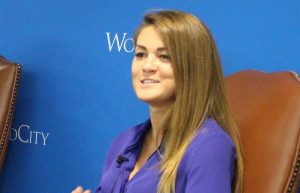
Devon White, inside sales analyst for Hamburg Sud
“I read something recently that the two biggest productivity killers in the office are meetings and managers,” said panelist Devon White, an inside sales analyst for Hamburg Sud.
“The article also suggested everyone should have one day where you try not to speak with anyone in the office and you just focus and use passive forms of communication like e-mails and instant messaging,” said White.
The idea is to find different ways to measure and increase productivity. An audience member agreed millennials are more detailed and focused, which often leads to greater productivity.
Another audience member made the point that millennials constantly challenge the status quo and ask why.
Ultra-Vigilant About Health
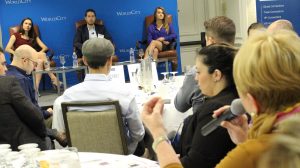 Millennials care more about their health at a young age than any previous generation.
Millennials care more about their health at a young age than any previous generation.
“It’s just something my parents told me they never even thought to think about…It was just finishing your plate,” White said. “When I have kids, I want to teach them from a young age what they are putting into their bodies and how important it is.”
White noted she sometimes uses her lunch hour to get in a workout at the gym for 35 minutes then eat while on the way back to the office. Acosta noted millennials realize that if they spend their entire early life working long hours and not eating well, when retirement comes, they may not be healthy enough to even enjoy it.
A Truly Adaptive and Global Generation
White is from suburban Maryland but wanted to study Spanish and now works in Miami, the epicenter of Latin American business. Acosta has lived in seven cities already and is only 32. Marin’s parents are small business owners in Puerto Rico.
How many children would have even thought to pursue a career outside where they grew up 50 years ago?
That ability to adapt is what the panel said they will do better than their parents and already are.
“They’ve always done it the exact same way,” said Marin of her mother’s and father’s business. “They couldn’t figure out how to use technology to change it or adapt it.”
Marin noted they found traditional ways to cut costs and survive but said she felt if it were a millennial, they’d be much more determined to change it, to look at new possibilities, and try to integrate technology.
Thank you to our sponsors:
